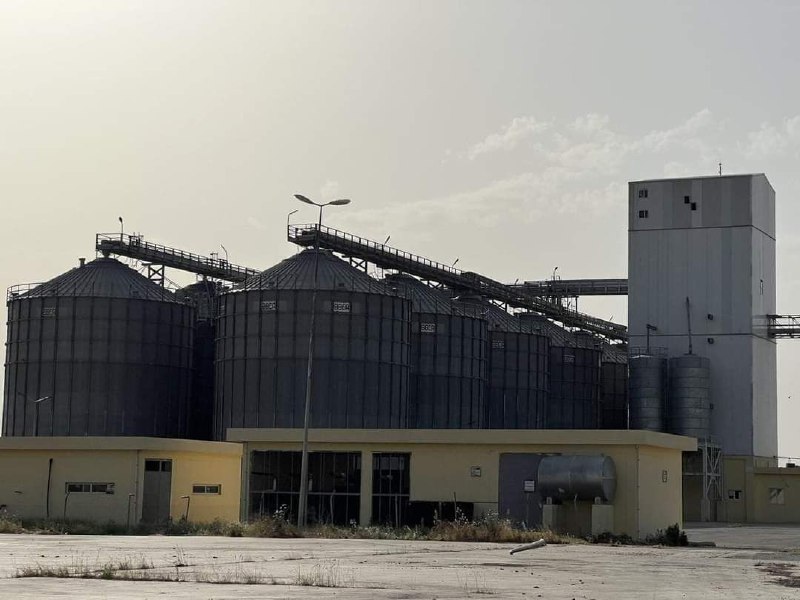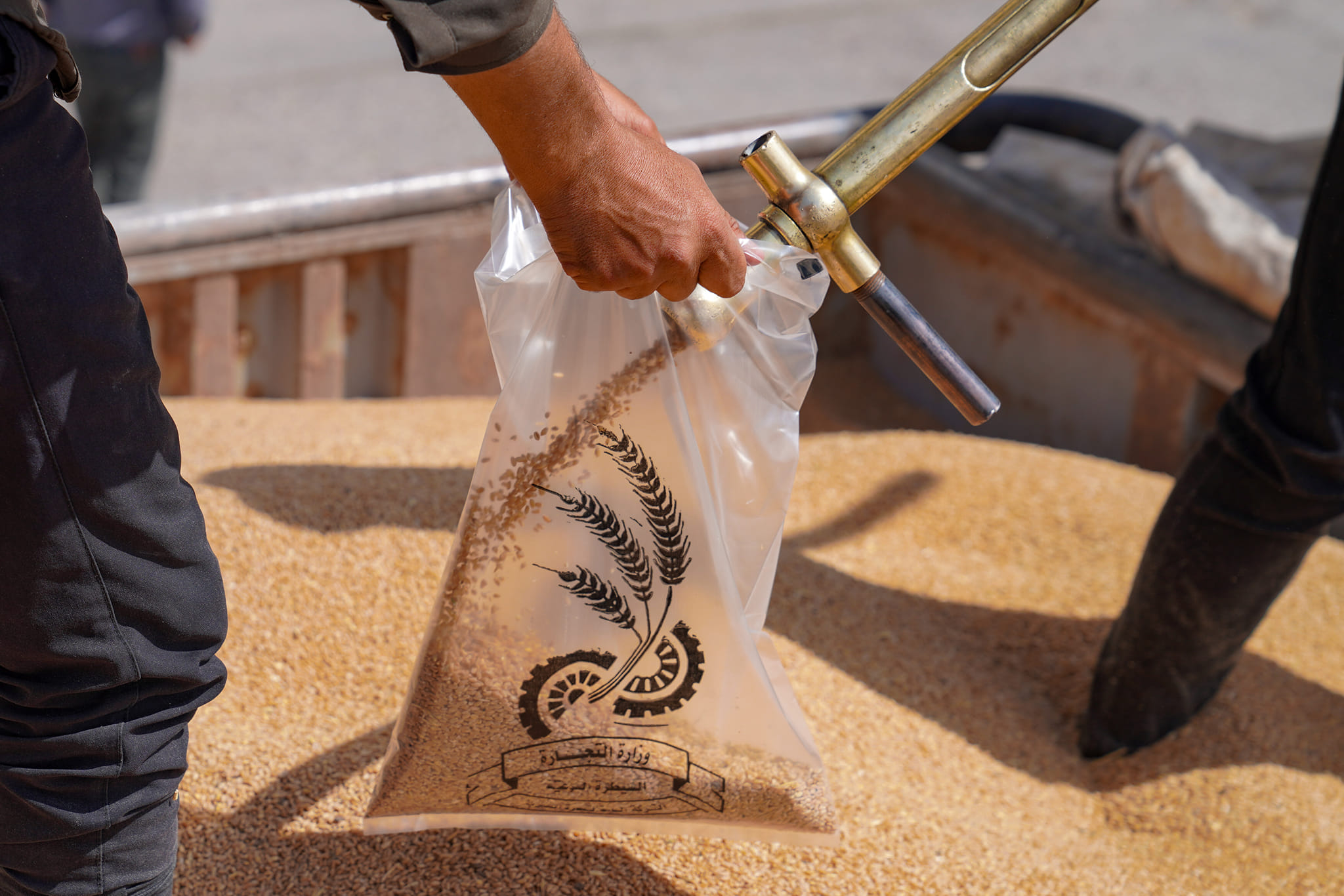Only a third of the wheat harvest is received by the Iraqi government from farmers in the villages of Sheikhan and al-Qush, due to lack of space and disagreement between the Iraqi federal government and the Kurdistan Regional Government KRG.
According to KirkukNow, about 200,000 tons of wheat has been produced in Al-Qush district and villages of Sheikhan district in Nineveh this year.
Khalid Bibo, director of the Sheikhan silo in Duhok province, told KirkukNow that the (KRG) and Baghdad have not yet agreed on the amount of wheat to be received Sheikhan, Faida and Zakho silos.
“As aid for delivering wheat of farmers in Alqush and Sheikhan, Roviya Square in Duhok has been allocated to receive their wheat, which is supervised by the federal government, but has the capacity to receive 65,000 tons of wheat while 196,000 tons have been produced in the region," Bibo said.
The Iraqi government pays 850,000 Iraqi dinars IQD (USD590) for a ton of wheat from farmers, but traders buy it for 650,000 IQD.
The Ministry of Commerce stores or buys grains from farmers and distributes it to mills in order to provide state-subsidized food rations and subsidized floor into markets as bread and rice make the main dish of the Iraqi cuisine.
Iraqi farmers depend on the state in the production of grains, a policy criticized by experts as for years’ grains were stored in silos in vain and funds not allocated to pay farmers who sometimes are obliged to sell their grains to traders and private silos for lower prices.
The government receives wheat from farmers at an amount ranging between 500,000-850,000 Iraqi dinars IQD per ton, depending on the quality of the wheat.

"It has been decided to open the Roviya field to farmers for wheat production, but it is still unclear when the Sheikhan silo will be opened because the Kurdistan Region and Baghdad have not agreed," Saryan Safar Elias, director of Alqush agriculture told KirkukNow.
Last year, part of the wheat was sent to Bazwaya silo, but this year Bazwaya will not receive it, because according to the Iraqi government's plan, the silo is set up for wheat in Bashiqa, Bartlah and Tilkef.
Elias said the Sheikhan silo, another gateway for the storage of wheat in Al-Qush with capacity of 107,000 tons, has not yet been opened and the fate of the farmers' wheat sales is unknown due to the disagreement.
“The KRG asked Baghdad to receive one million tons of its wheat and Baghdad have not agreed so the silos have not opened doors yet.”
Nineveh Province is considered to be a rich agricultural area, according to the Central Statistics Agency, 40 percent of the population live in rural areas and is expected to be the first wheat production in Iraq as in previous years.
During the past weeks, two million tons of wheat were received in the governorates of central and southern Iraq, and hundreds of thousands of tons are scheduled to be received in the northern governorates and the Iraqi Kurdistan Region IKR.
The Commerce Ministry expects farmers to produce seven million tons of wheat this year, which, according to General Company for Grain Trading "is enough to achieve self-sufficiency.”
The director general of the General Company for Grain Trading said the company still has 1,7 million tons of wheat from last year to meet Iraq's needs for the next four months.





